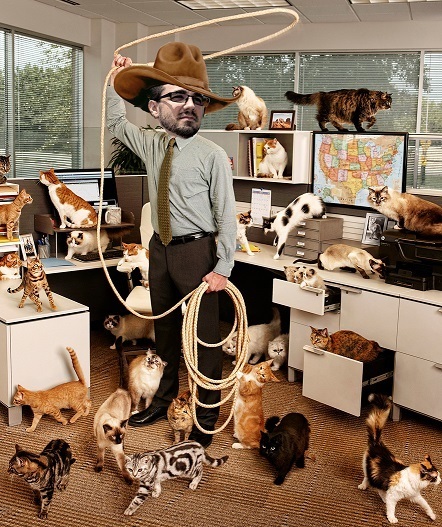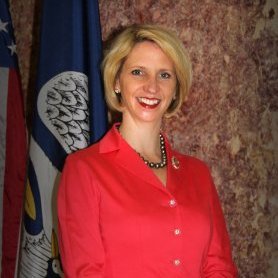
Medicaid Industry Who’s Who: SreyRam Kuy, MD, MHS – Chief Medical Officer, Louisiana Medicaid
- Which segment of the Industry are you currently involved?
My work in healthcare has been fluid, moving between the patient bedside, the surgical suite and the board room. However, at the heart of it, I’m a surgeon with a passion for healthcare quality and vulnerable populations. As a surgeon I took care of veterans. It was such a privilege to care for veterans; the men and women who fought for the freedoms that we enjoy. Many of my patients struggled with PTSD, depression, substance abuse and poverty. However, they are such an extraordinary group; one of the favorite parts of my work as a surgeon was listening to the incredible stories my patients shared about courage, camaraderie and the concept of never leaving behind your fallen “battle buddy”.
I’ve since transitioned from the operating room to the health policy arena, but these lessons that my patients taught remain with me. As we face the challenges of how to improve healthcare for our communities, our state and our country, it is only by having the courage to change the way we think that we can impact the direction of our future. It is courage that gives us clear eyes to embrace innovation and imagine beyond the reality of today.
Working in complex state level health policy, I see daily that camaraderie is collaboration crucial for accomplishing goals. Only by collaborating can we move the needle in health outcomes. Ultimately, we all have the same goal; to improve the health of people of our state. And bringing together all stakeholders’ perspectives, from providers to plans, from medical centers to the individual patient, is critical to making a real change in the health of the whole state.
Last of all, my veterans taught me that in the heat of the battle, you never leave behind your fallen battle buddy. For me, never forgetting your fallen battle buddy means never leaving behind the most vulnerable populations of our community. In Louisiana, we’ve been ranked 50th in the country for women’s health, childhood poverty, and overall health of our people. We have one of the highest incidences of cancer, highest rates of incarceration and highest rates of sexually transmitted infections. Being one of poorest states in the country, these are extraordinary challenges to face. However, as we work to improve healthcare quality, we have to realize that to truly move the needle on health, the most vulnerable populations can’t be left behind.
I truly do believe that with courage, collaboration, and the conviction to never forget our vulnerable populations, we can move towards a healthy community.
- What is your current position and with what organization? How many years have you been in the Medicaid industry?
I currently serve as Chief Medical Officer for Louisiana Medicaid. This is my first year in Medicaid. I was appointed by Secretary Gee with the charge to improve the quality of healthcare for the state of Louisiana, develop a statewide HIT strategy that would help us achieve the vision of quality, transparency and accountability, and address the health needs of the new expansion population. As you know, Louisiana is the first state to expand Medicaid in the Deep South. Previously, Louisiana Medicaid served only pregnant women, children, disabled and the extreme poor (at 12% of the federal poverty level (FLP). When we expanded Medicaid on July 1, for the first time adults aged 19-64 living at 138% of the federal poverty level, had access to healthcare coverage. In just two months, under the pioneering leadership of Secretary Gee, we’ve enrolled more than 300,000 new adults, who didn’t have healthcare coverage before. I don’t believe any other state has been able to expand Medicaid this rapidly, in such a short time span. This is a population that we hadn’t really cared for in the past. Now, our thinking had to expand beyond pregnancy and childhood health, to adult chronic diseases, cancer prevention, adult behavioral health, and the prison population. And we had to do it rapidly. All while also proactively addressing the Zika threat sweeping the southern gulf states and respond to the devastating flooding in Louisiana. So it’s been a fast learning curve. But I’ve been blessed with an incredibly talented team. They are truly the ones who’ve enabled us to nimbly tackle the challenges and proactively advance innovation during this first year. I am so grateful to get to serve the people of this great state, and work towards achieving a Healthy Louisiana!
- What is your focus/passion? (Industry related or not)
My focus is healthcare quality. All my work, designing a health information exchange, developing health quality performance metrics, implementing health initiatives; they all are aimed ultimately towards the end goal of improving quality to healthcare. In Louisiana, we’ve made tremendous strides in improving access to healthcare through Medicaid Expansion. Having access to healthcare is the first step. However, the next step is to ensure that people don’t just have access, but have access to quality healthcare. Ultimately, moving the needle on health quality is the end goal.
And we are seeing progress in moving towards a healthier Louisiana. In just the first two months since we expanded Medicaid, among the expansion population more than 1,000 women have gotten breast cancer screening or diagnostic imaging, among which 24 are being treated for breast cancer. Among this new expansion population, there have been nearly 700 colon cancer screening or diagnostic scopes, with 112 patients undergoing polyp removals. That’s 112 colon cancers averted. We’ve had nearly 12,000 patients receive preventive healthcare or new patient services. These are just among the newly enrolled patients. We’re also working on designing a comprehensive Health Information Technology strategy that promotes widespread adoption of EHR, enables connectivity and sharing of data, and promotes transparency in this data. These are just first steps, but a journey begins with those first steps.
- What is the top item on your “bucket list?”
I would love to one day go on an extended medical mission trip. I’ve never actually done a real, full time medical mission trip. During the recent flooding in Louisiana, I spent much of my time at the various shelters helping to coordinate medical relief efforts at the shelters. It was the amazing volunteer medical professionals from our community, as well as through the Red Cross and the National Public Health Service who provided direct patient care. But on occasion, I’d get to actually sit down with a few shelterees and hear their stories. They told about literally losing everything; from family photos to their whole home being gutted by the flood waters. But what I kept seeing throughout all these stories was a thread of resilience and compassion. One woman in a wheelchair talked about how another person in the shelter helped her get needed supplies, as she had difficulty navigating her way on her own in the shelter. Another person told me how they had lived through both Katrina, Gustav and now the “Great Flood”, and simply said, “I’m starting over again.” These stories of resilience, courage and compassion are what nourish the soul and define our humanity. They also keep me grounded and remind me of where I come from.
I myself lived in shelters when I was a young child, after we escaped from Cambodia and the Killing Fields. It was during this time in the Cambodian border refugee shelters that my family was injured by errant RPG explosives. A volunteer Red Cross Surgeon operated on my mother and me, saving our lives. I never learned his name, but that volunteer surgeon inspired both my sister and me to go into medicine. For me, it truly does hit home to see how medical mission volunteers can make such a tremendous impact in people’s lives. So one day, from my bucket list, I’d love to join a medical mission trip and work, not as a health official or administrator, but as a surgeon.
- What do you enjoy doing most with your personal time?
I enjoy writing. I’m very much an amateur, but practice makes better. As my sister and I were growing up, my mom would retell us incredible stories about our family’s life in the Cambodian Killing Fields. She shared stories about extraordinary acts of compassion, about having courage in the face of evil, and unrelenting faith that enables hope during the darkness of a bloody genocide. My mom, a small, humble woman, taught me so much about courage and hope. She truly has the heart of a tiger. Later, while I was studying at Yale, I visited the Yale Genocide Project, which made me realize how important it was to write down these stories, so they don’t get lost. So in my spare time, I write down the stories my mother shared, and weave into them my own experiences as a refugee, a patient, and a surgeon. My goal is that through sharing these stories I can inspire hope. The message I would share is that no matter how challenging your circumstances are; never, ever give up.
- Who is your favorite historical figure and why?
John Lewis. I heard John Lewis speak when I was working as a Kaiser Family Foundation health policy intern for Senator Tom Harkin. I still remember his vivid stories about his boyhood growing up on a sharecropper’s farm in rural Alabama, where he honed his oratorical skills preaching to his pet chickens, and first practiced nonviolence protesting his parents cooking those same chickens! It was amazing to hear the humble origin stories of this giant in the Civil Rights movement.
- What is your favorite junk food?
Peanut M&M’s and chocolate chip mint ice cream. Actually, any kind of ice cream is great!
- Of what accomplishment are you most proud?
I’m always very happy, and a little bit proud, whenever I convince my patient to quit smoking. I know it’s challenging, and people often think why would a surgeon care about smoking? That seems like a primary care issue. However, smoking is one of the main reasons why some of my patients need surgery, and it affects the ability of my patients to recover after surgery. Whenever I have to perform an amputation for a gangrenous diabetic leg, or for complications of severe peripheral vascular disease, it always feels like a failure. I always wish I could have prevented my patient’s disease from progressing to that point. And preventive care, such as smoking cessation counseling, diabetes treatment and prevention, and hypertension management, all contributed to that amputated leg. So even though it seems like a small win, every time I get a patient to quit smoking, I feel so happy and, yes, proud. I still have a photo of the package of Winstons that one patient handed over as he agreed to quit. The fact is, we have to think about health on both the individual level, as well as the population level. That is why, since we expand Medicaid in Louisiana, and now have the opportunity to care for this 19-64 year old adult population for the first time, preventive care is so critical as we work to move the needle on healthcare.
- For what one thing do you wish you could get a mulligan?
If I could do things over, get a mulligan in life, I think I’d be braver about taking chances. When two roads diverge, don’t be afraid to take the one less traveled. When I decided to become a surgeon, I had no idea how I would fit healthcare policy, into a surgical career. Since I was young, I’d always known that I wanted to work in some form of public service, and after working in Washington DC, I had a passion for healthcare policy, but I didn’t see how those would fit with surgery. However, during my medical school clerkships, I fell in love with wielding the scalpel. There was no place I loved more than being in the operating room. I had no idea how I would integrate these different passions, but I took a leap of blind faith and decided to do what I loved, and went into a surgical residency. However, there was a great deal of doubt and worry as to how it would all work out. I would tell my younger self, don’t be afraid. Just do what you love, and be brave.
- What are the top 1-3 issues that you think will be important in Medicaid during the next 6 months?
- Access to Quality Healthcare
- Meaningful HIT which helps us achieve quality healthcare
- The opioid epidemic and how we proactively and thoughtfully address it






